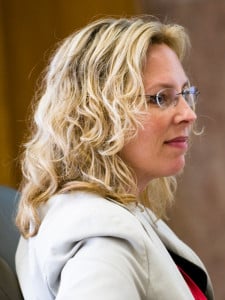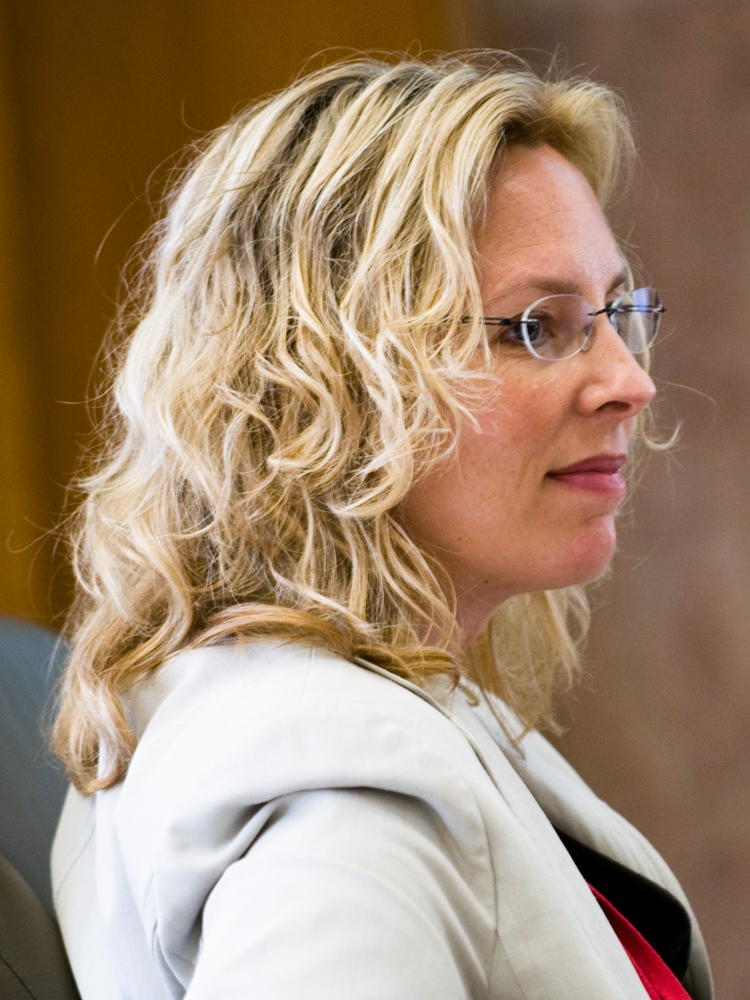
On Feb. 23, the deposed Yanukovych fled Kiev for Russia.
This past weekend, Russian President Vladimir Putin was given military authority to intervene in Crimea, prompting swift condemnations from the United States and European governments. Reports suggest that as many as 15,000 Russian troops have been mobilized to the Ukraine.
To better understand the complex and dynamic situation, The Daily spoke to Kathryn Stoner, senior fellow at the Freeman Spogli Institute (FSI) and an expert on contemporary Russia.
The Stanford Daily (TSD):What is the nature of Russia’s relationship with the Ukraine, specifically, the Crimea region?
Kathryn Stoner (KS): Russia has a several-centuries long relationship with Crimea — Catherine the Great established a warm water port there for Russia, Russia’s only warm water port. Ethnic Russians are actually the majority of the population in Crimea, where there are also ethnic Ukrainians and about 12 percent Crimean Tatars.
TSD: How would you characterize the current situation in Crimea? Is it an invasion?
KS: Crimea, for all intents and purposes, is now annexed to Russia. The government in Kiev would prefer that not be the case and will obviously fight that, of course — it’s not legal, there’s absolutely nothing in international law that says you can do that. Crimea is a province of Ukraine, a part of Ukraine.
TSD: There are prominent reports in Russian media about “armed people” in Kiev promoting lawlessness. What’s your reaction?
KS: It’s a lie. It’s propaganda, perpetuation of stereotypes from 70 years ago. Either Putin is getting wrong information about what is happening or is wittingly spreading this. It’s quite possible he’s just being given wrong information…One of the terrible ironies here is that the only people to have died in this are ethnic Ukrainians, shot on by their own government two weeks ago.
TSD: Does the United States have an obligation or a right to get involved?
KS: I think we, Europe and NATO countries more generally have an obligation. This is pretty bald aggression, military aggression, on a sovereign state. There is no U.N. mandate that the Russians had to go in. They had no direct evidence of violence that they can show us or anyone else that warrants this. It’s not even like Georgia, in 2008, when Georgians had fired a few shots before the Russians went in. In this case, there is nothing that can warrant baldly grabbing Crimea from the Ukraine.
The post hoc justification that Putin is giving now is that the legitimately elected president of Ukraine, Yanukovych, was tossed out illegitimately, in a coup. But that raises other questions, like how Yanukovych was ousted by an elected Parliament on a unanimous vote. He also chose to flee. He walked away, saying his life was under threat. Why did he run away?
TSD: How do you think the U.S. has handled the situation so far? What can the U.S. really do in situations like these?
KS: I think we’re using the very weak levers that we have as well as we can. Not just the U.S., but also the other G8 countries that have said they have stopped preparing for the upcoming meetings in Sochi. Canada, for example, has recalled its ambassador to Russia.
Funnily enough, we currently don’t have an ambassador to withdraw — he’s here in Palo Alto [referring to returning Stanford political science professor Michael McFaul ’86 M.A.’86, who is leaving his diplomatic post]. I think the bigger issue here is cutting off assets to wealthy Russians with bank accounts in New York and London, for example. That will put some pressure on Putin to negotiate or find an off-ramp.
We’re not going to war over the Ukraine. We’re just not going to do that. But I do think that this will have years if not possibly decades-long ramifications in terms of Russian relations with the U.S. and Europe.
This interview has been condensed and edited for clarity.
Contact Edward Ngai at edngai ‘at’ stanford ‘dot’ edu
